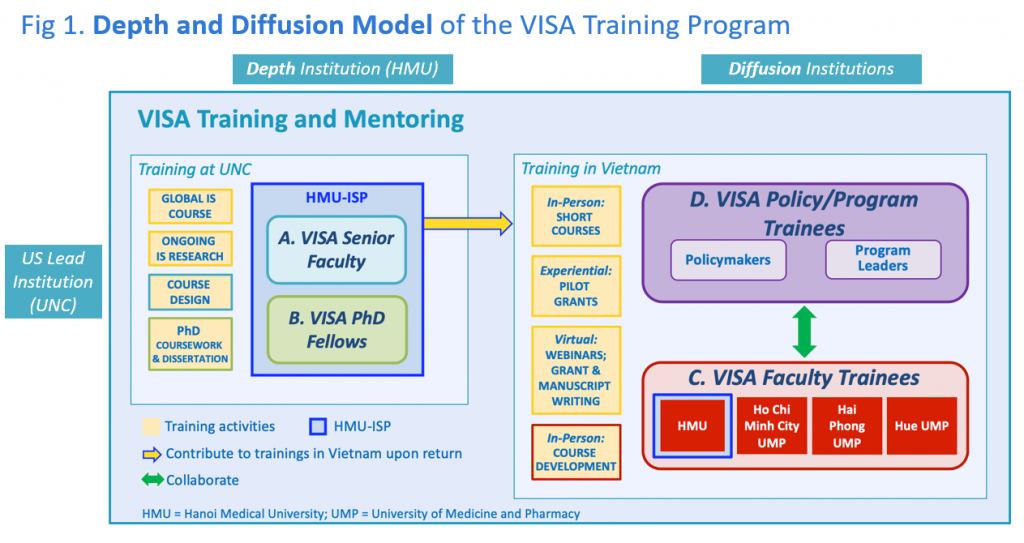

Vivian Go, PhD
Professor of Health Behavior
The Vietnam Implementation Science Advancement Program (VISA) will:
In VISA, we will train faculty to conduct IS research, including identification of appropriate EBIs and to develop curriculums in IS for MPH, PhD students and preventive medicine residents. Policymaker and program administrator trainees will obtain the skills to translate research into practice and champion national scale-up of contextually appropriate, HIV-related EBIs.

Aim 1: To develop IS capacity among Vietnamese health science faculty, policymakers, and health program administrators to foster translation of HIV research into practice.
Activities: 24 faculty members across 8 health science universities and 24 policymakers or program administrators will participate in IS short course participation and quarterly webinars. Content will include IS research, including applied IS, and HIV-related EBIs (i.e., substance use, alcohol, mental health, MSM, STD, and PrEP). Participants will compete for mentored pilot grants in multi-disciplinary teams, including faculty and policymakers or program administrators.
Aim 2: To provide foundational IS training for Vietnamese faculty in the 8 health science universities in Vietnam to develop and lead core IS courses within existing MPH, PhD, and/or preventive medicine residency programs.
Activities: In addition to the Aim 1 coursework and webinars, 24 faculty members will participate in supplemental hands-on, guided curriculum development. A subset of interested faculty members will also develop an advanced IS methods course. Course delivery will be supported by mentored group and individual check-ins by the VISA team members.
Aim 3: To expand IS research capacity in Vietnam by training two doctoral students in the residential PhD program at UNC focusing on IS.
Activities: Two doctoral students will attend UNC for two years to complete required PhD coursework and then return to Vietnam to complete an IS dissertation. The students will assist with short course instruction in Vietnam each summer. They will also support trainees in Aim 1 as they develop pilot grant applications.
VISA is unique in its engagement of university faculty, policymakers, program administrators, and students. This approach increases the immediate impact of the training program to facilitate scale-up of HIV-related EBIs with appropriate preparation and evaluation. In the long-term, VISA has the potential to reduce burden of the HIV epidemic in Vietnam and affect the procedures for implementation of other EBIs beyond HIV. VISA will also serve as a model for future IS-focused training to support the region of Southeast Asia.


Professor of Health Behavior
For more information in the meantime, reach out to the Fellowships and Training Programs Office.